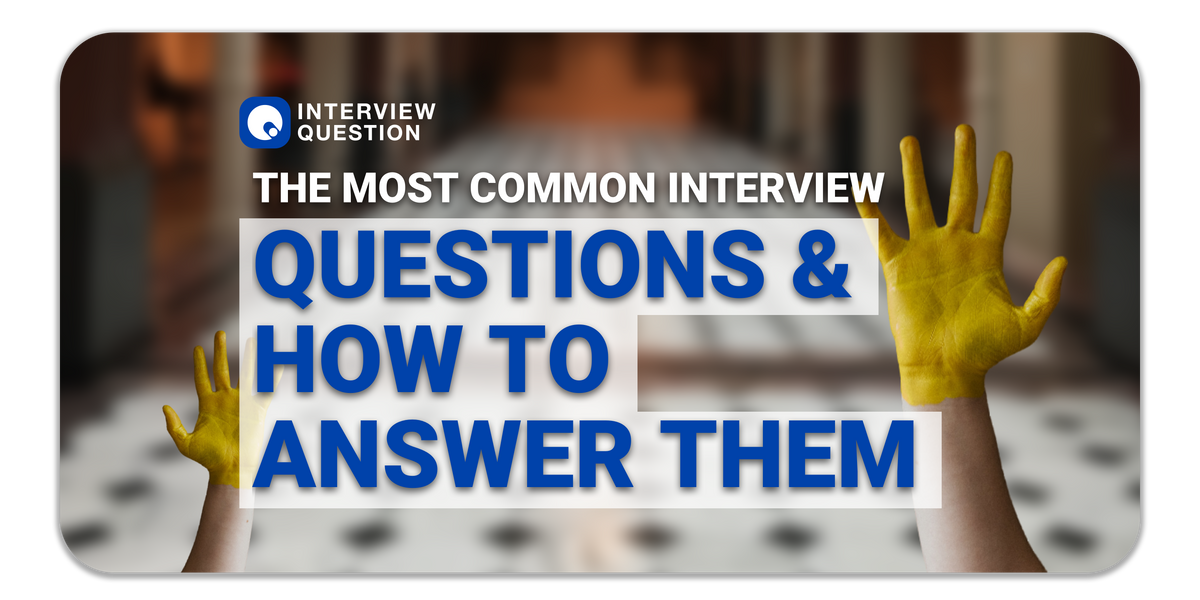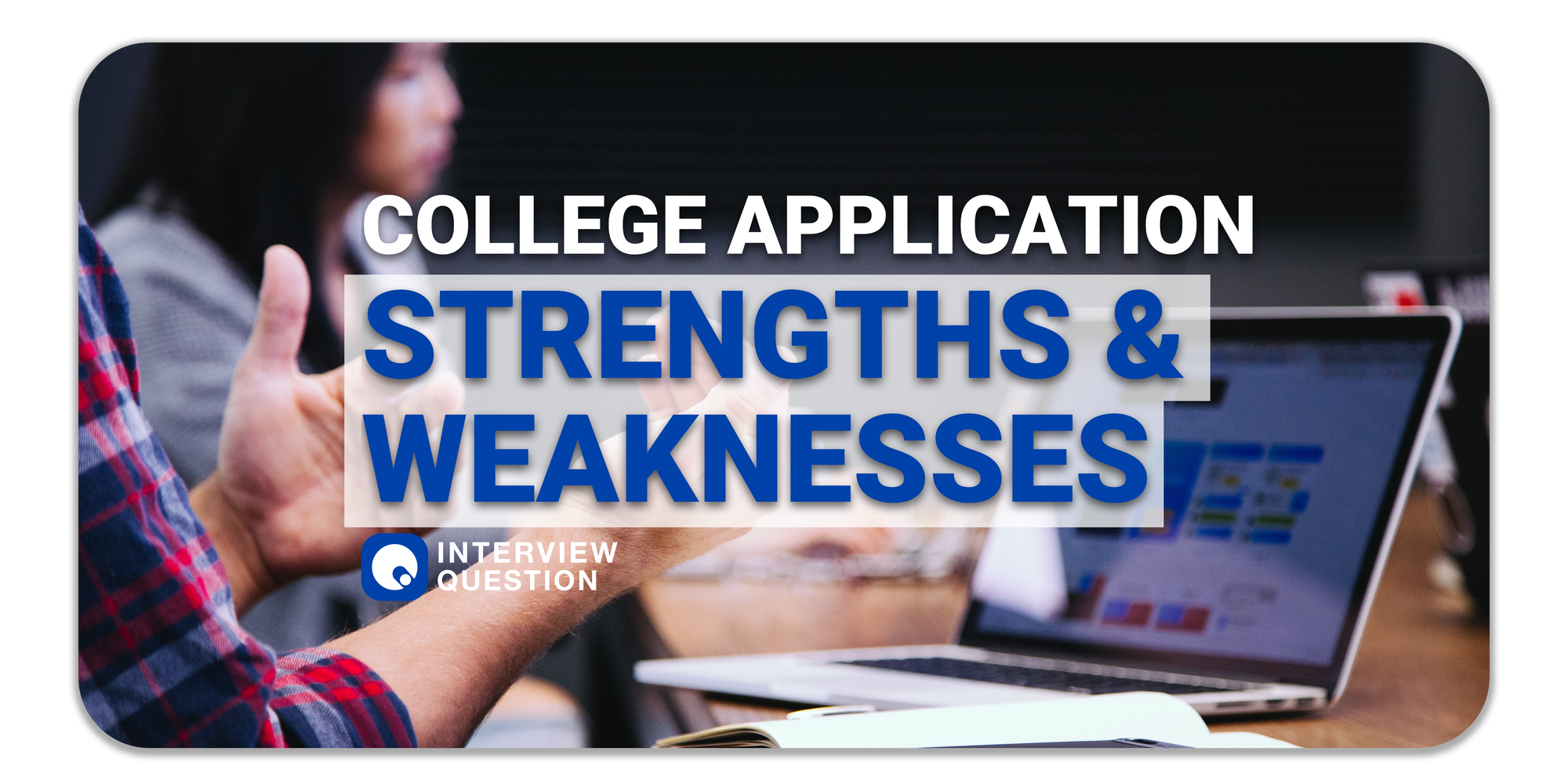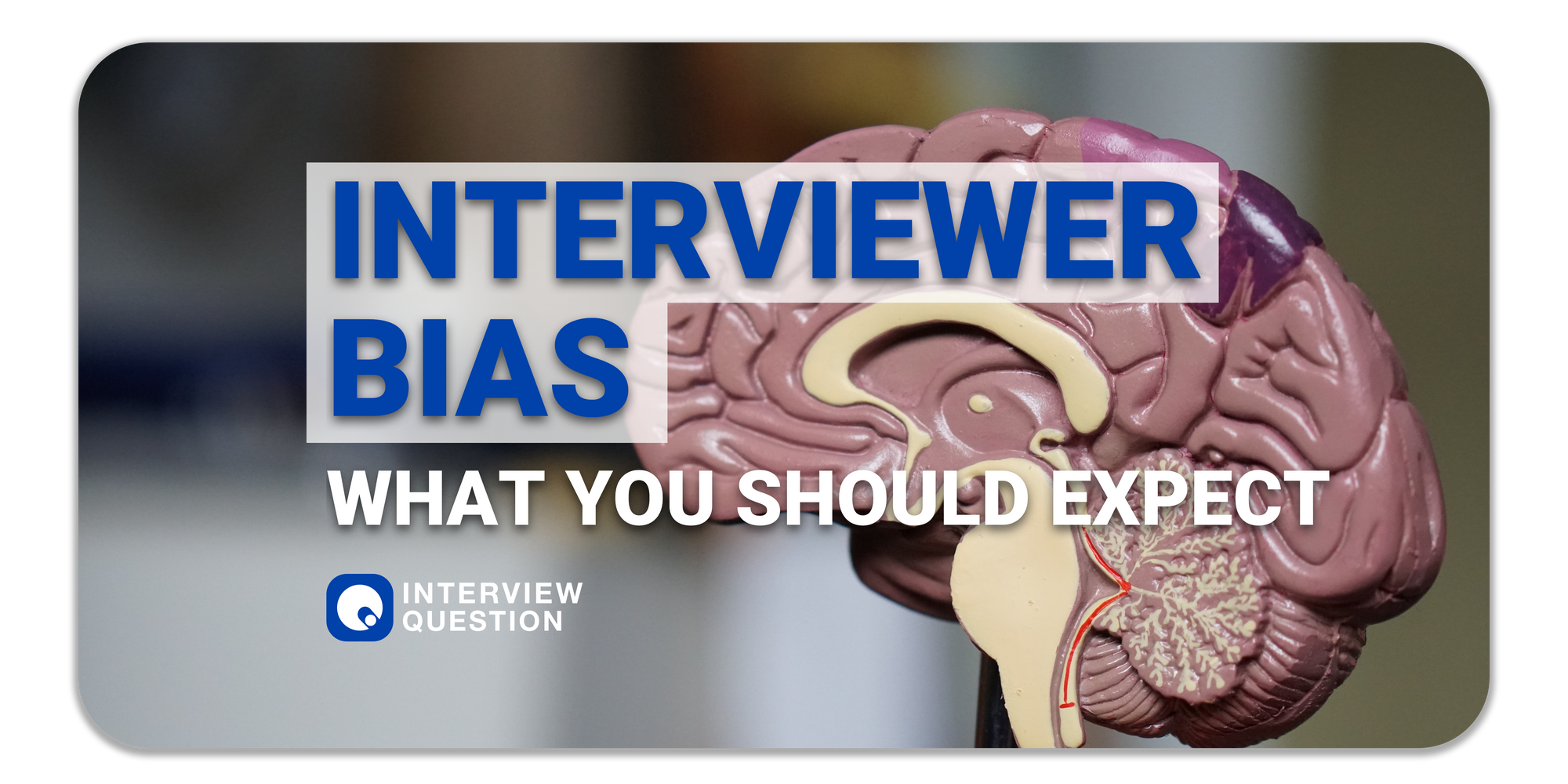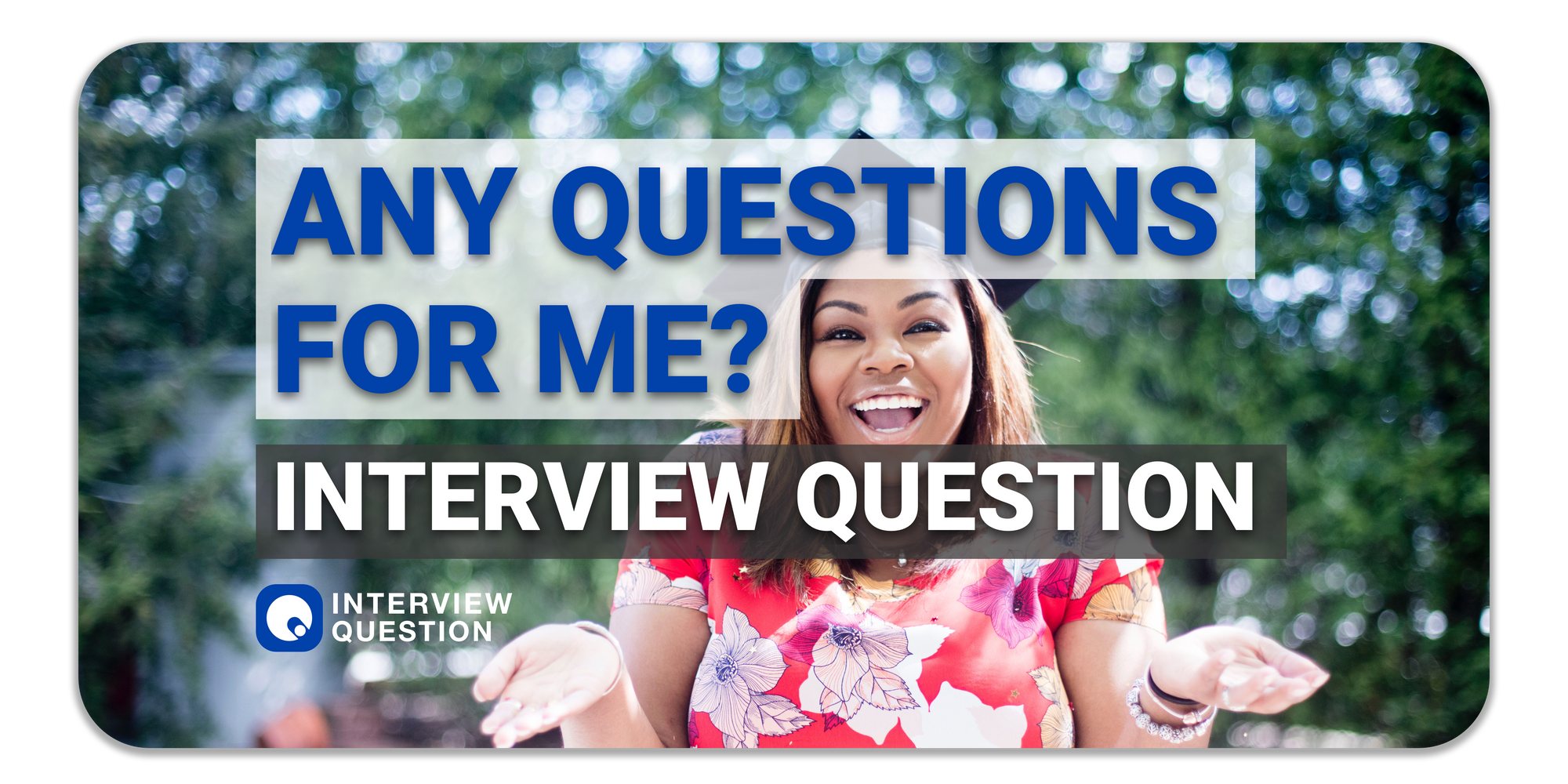Most Common Interview Questions & How to Answer Them
• Give a 30 Second Introduction • Why You Think You Are Qualified • Initiative & Goals • What Others Say About You • What Kind of Person Are You • Why Did You Quit

Below, we have compiled a list of the top 10 to 20 of the most common interview questions that you are likely to be asked. To make it easier for you, we've also included a list of possible answers for each question.
These are generic questions applicable to all sorts of interviews (from jobs, school admissions, investigations, and more) - however, be specific to the situation when given the chance. It is important to understand that these are generic answers; these are sample questions and answers, where you may need to add more details in order for them to qualify as an actual answer.
Tip: Keep in mind that there is no 'right' or 'wrong' way of answering interview questions; there are only answers that feel right and those that don't. There may be a lot of possible ways you can respond to a question, but you should pick the one that feels most comfortable and natural for you. You have more chances of being selected or hired if you feel more confident during the interview!
What can you tell me about yourself?
This is your moment to shine! Be confident and use your introduction as an opportunity to showcase your best qualities. Don't forget to mention any relevant prior experience as well as what motivates you to want this particular position.
Tell me about yourself in 30 seconds or less
This interview question is often used to test candidates' speaking skills. You will want to make sure that you explain yourself succinctly and in a way that addresses the questions asked before getting started. If you have a lot of experience to talk about, then start by talking about some of your accomplishments, such as how you made an impact on a project or how you solved a tough problem. Be as brief as possible, but don't go into unnecessary detail either. Keep the focus on your strengths and how they can contribute to the company's mission. One thing you must do is to stick to the time limit assigned (your 30 seconds introduction should be 30 seconds and no more) and avoid rambling. Answer the questions asked in order and don't give your interviewer more than one example for each question.
What is your greatest strength?
This question is meant to gauge your motivation, drive and ambition. You should be able simply to answer "my ability" or "my work ethic" if you feel these attributes are the best things about you. Otherwise, explain a personal accomplishment from the past that shows how motivated you are.

Describe a time when you demonstrated initiative?
This question is often used to gauge how quickly someone can respond in stressful situations and also how well they follow up after completing a task. You should be able to talk about something that occurred in your career, such as when you responded quickly after learning of an emergency or while working on a project during crunch time.
What do you know about this company?
You need to be prepared if asked this question. You can do research about the company right before the interview, and you should know what their products or services are, who their major competitors are, as well as what geographic areas they operate in. Know also your salary range in advance and have an idea how much you might contribute to the growth of the company if hired.
What do you think this position involves?
You should understand what job responsibilities and requirements come with a particular position before applying for it (or accepting it once offered). Ensure that the duties described in the job description match up with your strengths and experience so that if hired, you can give them your best.
Be wary of the interviewer's biased and skewed views. He or she may have heard of you from someone or somewhere else, so it is always good to be cautious when the interviewer seems to be especially talkative and asks many questions.

What are your salary requirements?
If you think this job is right for you, then you should know what salary range is expected. This will give you a better picture of what to set your expectations at based on past experience, what similar positions may pay in the same area and also where you fit within the spectrum of pay compared with other people in the position.
How much do you need in order to live comfortably?
This question is an expected one given that most people need at least some sort of financial stability in order to live comfortably. You should know your figure in advance so you can propose a figure that's neither too high nor too low. If they don't offer you the salary you were hoping for, calmly explain why you believe it to be fair and back it up with evidence if possible.
What are your career goals?
It is important to know what direction you are headed on as well as where big companies see themselves going in the future. For example, if a company such as Google or Apple is asking this question, then they probably expect an answer that aligns with their focus on innovation and technology. If, however, you're interviewing with a non-profit organization or government agency, they may want to hear that you have a passion for widening the reach of their services or making a difference in the lives of others.
What would your previous manager say are your strengths and weaknesses?
It is important to first talk about your strengths before talking about any weaknesses. Once you've mentioned all of them, then be sure to detail any specific areas that you are working on improving upon. This question allows you to demonstrate that at least some aspects of your character can be improved and fine-tuned (as opposed to possibly appearing arrogant and unaffected by criticism) while also being able to discuss how those weaknesses are no longer an issue.
Are there any questions you would like to ask the interviewer?
It's important to know what you should be asking before the interview, as well as what questions you're actually going to want to ask. If they ask a question about your past work experience and you don't have any relevant examples, then simply say that you don't have a specific question for that area and move on. For example, if a company is interviewing candidates in accounting, realize that most will have specific questions for them in relation to bookkeeping or financial management but there may be other areas where they have experience in that are not directly related to their job description.
What kind of person are you?
Behavioural questions are often used to get a better sense of what a candidate's personality is like. This question gives you the opportunity to show your strengths and potential ability to work well with others and fit into the company culture. To describe yourself, you should first talk about your strengths and also any past experiences that have helped to develop those strengths. This gives the interviewer a better idea of what kind of role you would be best suited for (that is, a technical role vs. a sales role). Some interviewers like to use this question as an opportunity to see how candidates respond under pressure. You can answer this question truthfully by talking about the characteristics that make you unique and valuable to an employer, as well as how your personality has changed since you were younger.
Can you tell us about your teamwork experience?
This two-part interview question asks for a brief description of both positive and negative experiences. You should begin by telling about a difficult situation that required working together with others. Then talk about how you overcame the challenge. You should try to show that you learn quickly from mistakes and are able to work as part of a team. Finally, mention a high point in your team working experience, such as the time when you won an award or completed a difficult project.
Why did you leave your last position?
This is a good question to ask because it gives you the opportunity to demonstrate that you are able to adapt quickly to new situations and can handle changes. This is not to question you why you quit or penalize you specifically. Your answer should be succinct and list only those circumstances that made it necessary for you to leave. It's also a good idea not to cover your salary demands as this may limit your ability to negotiate for a higher rate once hired.
Tell me what makes you qualified for this position?
You need to be prepared for any question that may come up regarding why you are suited for the role. If you're interviewing for a software developer position, then you may be asked about your expertise in SQL. As a candidate, you should be able to talk about all of your accomplishments and not just those related to the job description. You need to think about what makes you different from other candidates and then explain why this is relevant to the role.
What is one thing that you like most about working or doing in your last job / school?
This is another behavioural question that requires an appropriate answer. You should ask yourself what common experiences would make this interview stand out from others of the same type. For example, were you involved in an important project? If so, then try to make the case that this experience would be valuable to the company. If you can show that you have enthusiasm for what you do, then you will give a good impression of yourself.
How much money are you looking for?
This is one of the most difficult interview questions to answer. It's important not to make your salary request too high or too low. If possible, first check out some websites that list average salaries in your field. By using market research, you can make a case for how much more (or less) money you may reasonably expect based on your experience and achievements. At the same time, you should have a sense of what is fair for the job you're interviewing for.
Tell me about a situation that was stressful in your work environment.
This is a typical behavioural question that asks for an example of an occasion when you had to deal with pressure. You should mention something that you already had experience with, such as a difficult boss or an overbearing client. This is also a chance to talk about how you handled the situation successfully. Needless to say, this story must have a positive outcome so don't dwell on any failure.
What are your goals for the next 5 years? 10 years?
It's important not to be too vague in answering this question. Try to talk about specific career goals such as reaching a certain level of promotion or financial milestone. Keep these goals realistic and general enough to be used in the future but specific enough as to be measurable. For example, your goals should include a target (like making manager or earning $50K) and also indicate how they can be measured (i.e., by completing a certain number of projects or through promotions).
What is your biggest weakness?
This question is meant for you to admit a shortcoming, but remember that interviewers prefer candidates who are strong in all areas. You should give them an answer that you are confident with, such as "I'm a perfectionist". Then follow with an example of how this could affect your job performance negatively. You should have an honest answer ready. For example, you may not be an early riser or you may struggle with motivation. Don't be afraid to say that you're an organised person who tends to over-organise but that this can make it difficult for others on your team who aren't as anal about details.
This question further shows that the company wants to see if you are able to learn from your mistakes. An appropriate example would be: "I failed a project due to my own mistakes. I learned from this experience and improved in order to prevent a similar problem from arising in the future." Show that you are able to understand and accept your shortcomings but also demonstrate how you have grown since then.
How would you react if your boss told you that you had to work on a Saturday?
I would be upset. I would want to know why they were asking me to do this. Then you can go on elaborating your answer, to briefly gloss over your disappointment but your understanding that it's important for the company, and in the long run it will be better for you since you are part of the team. What is the biggest mistake you have ever made and how did you recover from it?
Would you rather be a leader or a follower?
We live in a society that values leadership. This question is meant to measure your willingness to take the initiative. You should be honest in your answer since the interviewer will notice if you try to make yourself look better. If you prefer to be a leader, then talk about how you are a natural leader who gets things done and takes control of any situation. If you're more comfortable as a follower, then explain how this works for you and why it makes you an effective employee.
What are three things that you would like to improve on?
This is another behavioural interview question that requires an honest answer. The company will probably ask for examples and this means they want to see what steps you have taken to improve yourself. You should mention something that's relevant to the role but be careful not to put yourself down. For example, you may have had difficulties with a new learning technology. If you feel that this would affect your performance, then you should think about ways of overcoming it. For instance, if it's something that only occurs when you're in front of the screen, you could try to be more proactive with your team or even suggest a different solution.
What projects / tasks have you been involved in and completed? Show me the step-by-step process.
This is just another opportunity to discuss your experiences. You should speak about an important project and explain why this particular experience would be useful for the organisation and required for future projects. Don't forget to include the outcome. For example, you could mention that you were able to achieve a particular aim or the "value generated". In other words, what value did you generate (for the company or your colleagues), and how did this affect the company as a whole?
Where do you see yourself 5 years from now?
This is a generic question that's meant to gauge the type of career aspirations that may lie ahead. It's important not to be too vague with your answers. You should choose one of three options:
- I want to stay in this position for at least 5 years.
- I want to advance into a mid-management role within this organisation in 3 years time.
- I'd like to move into a different, bigger company in 2 years.
If you choose the first option, then you may be considered a safe choice but it's also possible that you lack ambition and the organisation won't see much growth potential in your career. As for the second option, this would be suitable if you will still be able to achieve what the organisation wants from a mid-management role in three years' time. However, if they want someone with more experience for their mid-management position then it's better to go for option three even though the time frame is shorter.
What is your biggest accomplishment?
This is a good opportunity to talk about one of your important projects and to point out how it has helped you develop as a person. You should try and show the interviewer that your personality traits match well with the type of leadership positions that are open in the organisation.
Is there anything else you would like to tell us?
This final question can provide you with an opportunity to mention any other values or experiences that are relevant. In addition, it's a good idea to ask for feedback on your resume so that you can begin thinking about ways in which you can improve it next time around. You might not want to go into too much detail, but it's still a good idea to point out your achievements.


